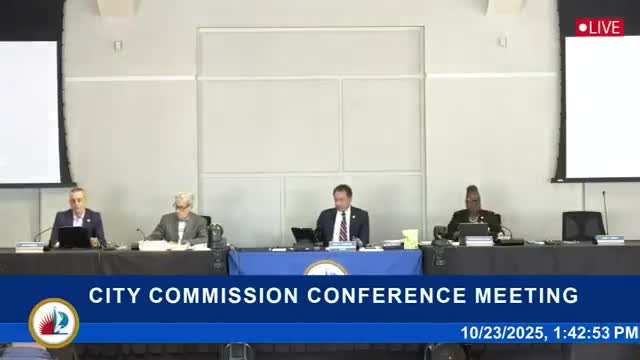Board of Adjustment urges limits on administrative variances, warns of appeal volume
Get AI-powered insights, summaries, and transcripts
Subscribe
Summary
The Fort Lauderdale Board of Adjustment told the City Commission it wants administrative variances limited to changes to existing structures and warned that allowing orders from the board to be appealed directly to the commission could produce a heavy volume of appeals.
The Fort Lauderdale Board of Adjustment asked the City Commission to clarify that administrative variances should not apply to new construction and warned that allowing orders from the board to be appealed directly to the commission could create a high volume of commission appeals.
At the conference meeting, a city representative read the board’s communication, saying it “starts out with a motion made by Miss Pat Rathburn, seconded by Mister Hagopian … The board desires that the following be addressed, that the administrative variance does not apply to any new construction.” The board also “said the city commission may want to reconsider hearing appeals because … their sheer volume,” the representative added.
Anthony Fajardo, director of development services, told commissioners staff had discussed the point internally and said the ordinance change under consideration creates an administrative review process for variances while allowing an order from the board of adjustment to be appealed to the City Commission in lieu of circuit court. “If you want us to make a change to the ordinance, we could, but we think an interpretation will cover it,” Fajardo said. He described staff’s intent as: “Anything that’s brand new would have to go through the typical process. Anything that’s subject to an existing structure and some kind of change to modify it would go through the administrative process.”
Commissioners debated the trade‑offs. One commissioner said allowing appeals to the commission saves homeowners the expense of going to court. The board of adjustment, the commissioner added, asked only that the commission be aware appeals could take substantial agenda time if they occur regularly.
City staff told the commission the draft ordinance language was revised to make clear that the administrative review process applies to existing single‑family dwellings and accessory structures, not to new construction.
No vote was taken at the conference; commissioners indicated the item would be discussed again and could be considered at the evening meeting when the ordinance is on the agenda.
